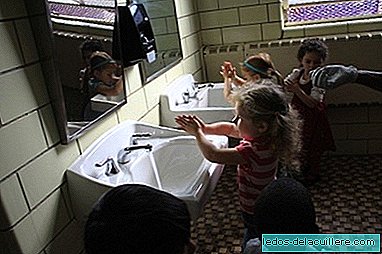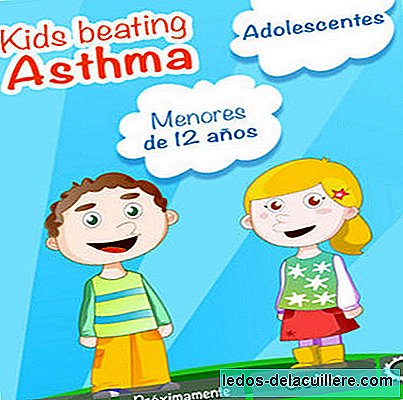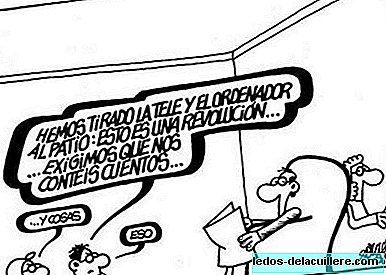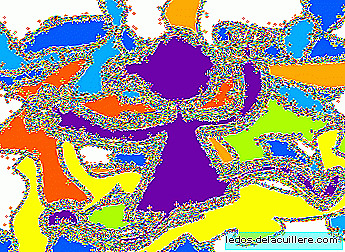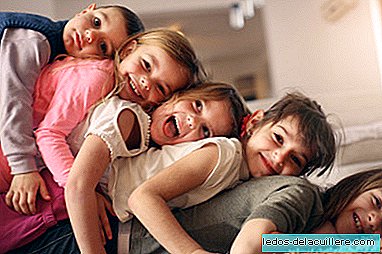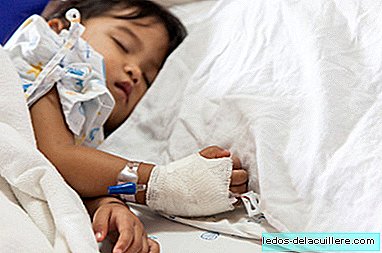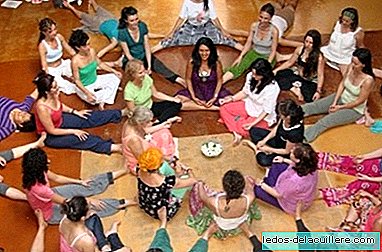
Today we interview Andrea Luraschi, psychologist specialized in conscious pregnancy and motherhood. Throughout this post and the next we will enter with her in the emotional changes and needs of a mother who expects a child, in the necessary role of their partners and the support that society offers them.
Andrea, have you always directed your professional activity as a psychologist towards mothers and conscious pregnancy?
I have always felt very attached to this field that studies women in psychology. Already being a student, the little information and bibliography about the feminine universe made me noise, or that there was little research on the mental processes that make us women.
What has been your career?
Then I have been able to build my definitive orientation, throughout these years, beyond the rigor readings and information on female psychology. Psychoanalysis was initially my obligatory and forced step, to then take other contributions, from the hand of postgraduates that I have sought. I have studied Positive Psychology, Hypnosis and Neurolinguistic Programming, where I obtained the degree of Trainer in this discipline. But I think it was, as happens to many, from my own motherhood, and how she has impacted on me, since before choosing to be a mother, I think I have been preparing, to accompany "women in a waiting situation" , as I like to say to pregnant mothers.
What do you mean by "women in waiting situation"?
This feature of waiting with the body, with the soul and with the being, makes us, among women, mothers, the most patient of all the revolutionaries. I like to merge these features of revolution and patience, perhaps as a deep synthesis of what happens to moms throughout the whole process that makes us givers of life.
Do we receive enough support and recognition from mothers in the workplace?
In the origins of my work with women I discovered and covered that lack of listening of organizations, or denial that underlies the mother who works from the world of work.
It is very painful, at least in my country, that the legislation provides little time for mothers of the post-natal period, and returns to work become very painful.
To what extent does motherhood change the way we see ourselves and see our own lives?
Well, it's been ten years that I've been working with women since pregnancy, or the search for him, then also with the elaboration of the birth experience. It is very important not only to open up to transit the pregnancy, along with other women, but also to elaborate the own feminine subjectivity that is put into play in the maternity of women. That woman is different, today than before, and she will be different in her morning, as well as her story, her partner, and that particular child. The therapeutic efficacy is important to accompany the woman and the "amorousness" towards the same that women must give ourselves to us, not only pregnant, but throughout our lives.
But should we see pregnancy as a crisis?
Pregnancy is a time of vital crisis, taken as a transformation, an opportunity for happiness but sometimes it is not so easily for everyone.
There are social myths, limiting beliefs and mandates that prevent women from taking charge of living their pregnancy fully. And since it is a crisis, motherhood can be accompanied by symptoms that can only be treated by a qualified mental health professional.
Do women receive sufficient emotional support and information about what motherhood will mean in their personal transformation?
No. Really as I was telling you, women do not receive information during the course of pregnancy, or very rarely, about the emotional becoming of being a mother. There is a great lack in maternity approaches. In my country they are only physical. There is no mind, no spirit seems. For social works, or classical obstetrics, the emotional does not exist. If, hopefully, they are attended by holistic professionals, or in an interdisciplinary team, if their emotions can be taken into account and valued. But, if not, the focus is solely on the physical. But pregnant mothers are more than a body that houses and gives life to another, we are a mind, heart, spirit that we open ourselves to that other and give it life. That in itself is very strong to elaborate. He thinks that, at most, there is a preparatory course, and within it, a single meeting aimed at solving the emotional issues that are triggered by motherhood. Very poor is this approach. For professionals who work for humanized probation, in clinic or at home received within health policies, and also spread our mission.
We thank the psychologist Andrea Luraschi the time she has dedicated to us and we continue talking with her to continue the interview; while you can know her better on her page Mamitrabaja.
Tomorrow we will publish the second part of this interview with psychologist Andrea Luraschi, which surely helps us to understand each other better as mothers and also allows our partners and family to offer us the support we need.
In Babies and more | "Being a mother is being the best experience of my life." Interview with singer Nena Daconte, "We must totally change our production system." Interview with Carlos González, "Babies who do not receive human milk are more likely to get sick," IBCLC interview Ana Charfén



